| A | B |
|---|
Which emperor took tens of thousands on his hajj to Mecca?, 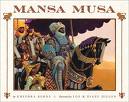 | Mansa Musa |
From which empire did Mansa Musa hail?,  | Mali |
What did Mansa Musa have sprinkled ahead of him?, 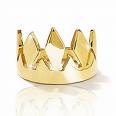 | gold dust, 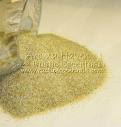 |
| What negative economic reaction did Mansa Musa's hajj cause? | inflation in Alexandria and Cairo, Egypt |
| What was Sundiata also known as? | The "Hungering Lion" |
| Where was the premier scholarly place in W. Africa? | Timbuktu |
Main building materials of the early W. African mosques, 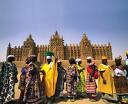 | Mud and wood |
| What type of social system dominated the W. African culture | clans |
| Means a social rank system | caste |
| Traders and Islamic religious people learned this... | The Arabic language |
Gold mines' secrecy caused this type of trading:,  | silent bartering (trading) |
| Gold was equal to this in value | salt,  |
| A professional storyteller who passed on oral history | griot |
| a wise saying | proverb |
different jobs and skills in a society,  | labor specialization |
the "shore" of the desert, 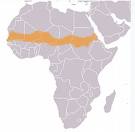 | sahel,  |
the world's largest desert, 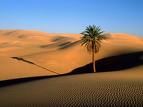 | Sahara |
| Which African region are you most likely to find large grazing herds | savannah |
| W. African slaves could earn their freedom by doing this... | earning money to "buy" their freedom. |
a function of dance in W. African cultures,  | act out stories of gods and ancestors,  |
| What term describes the land south of the Sahara Desert? | It is "sub-Saharan". |
| Why did W. African cultures use griots? | First, they had no written language, and the griots helped retain or remember their history. |
| Why else did W. African cultures use griots? | The griots helped teach children cultural values, and they helped advise the rulers. |
| On what famous geographical water feature did Ghana and Mali develop? | They developed on or near the Niger River. |
| What two products drove the W. African trade network? | That revenue stream was based on the Salt-Gold trade. |
| What type of "special" trading went on with gold? | They used a form of trading called "silent barter" to protect the gold traders. |
| Eventually what religion gives W. Africans a written language? | The Islamic religion spread as a result of trading. Along with the Islamic religion came the Arabic language. |
| When one is born into a "caste" social structure what does that mean? | It means you are born into a social level and you cannot move up or down regardless of how hard one works. |
| What role did dance play in the W. African society? | They acted out stories of past, and celebrated life events like birth, marriage, and death. |
| What eventually destroys the Ghana Empire? | The Empire of Ghana was eventually conquered by the ALMORAVIDS. |
| Where might archeologists find the richest source of information about Ancient Ghana? | Most of the material culture and the oral histories provided the basic information. |
| How did W. African cultures view "kinship"? | They believed that kings and rulers come and go, but it's one's family that remains constant; like a glue. |
| How did tale of Anansi the Spider help society? | They were used to teach young children cultural values; ethics, right from wrong, and morals. |
| What types of rights did slaves have? | 1. They could earn money to buy their freedom. 2. Their families could not be split apart. 3. They could not be punished too harshly. |
| Which climate zone has wet and dry seasons? | The savannah has wet and dry seasons. |
| Why was Arabic so important to the W. African economies? | Arabic provided a "common" language and a religious connection. |
| Sunni Ali-Ber used his power how? | He used it tyranically. |
| Of all the things that happened in W. Africa, what spread their culture beyond Africa? | West Africans being taken to other counteries as slaves. |
| What did Askia Muhammad do as emperor of Songhi? | 1. He went on a pilgrimage to Mecca. 2. He encouraged Islamic scholarship. 3. He expanded the empire. |
| Which W. African Empire had complete control over the gold/salt trade? | It was the kingdom of Ghana. |
| For what was Timbuktu in Mali most famous during the th century? | It was a center of Islamic learning. |
| What was the main difference between the economy of the W. African city and the economy of the W. Afican "village"? | The city's economy was based on trade, whereas the village's economy was based on (food) production. |
| Who is considered to be Mali's national hero? | Sundiata, the Hungering Lion, the "crippled" boy. |
| Which climate zone might you find "large herds" of grazing animals? | The Savannah |